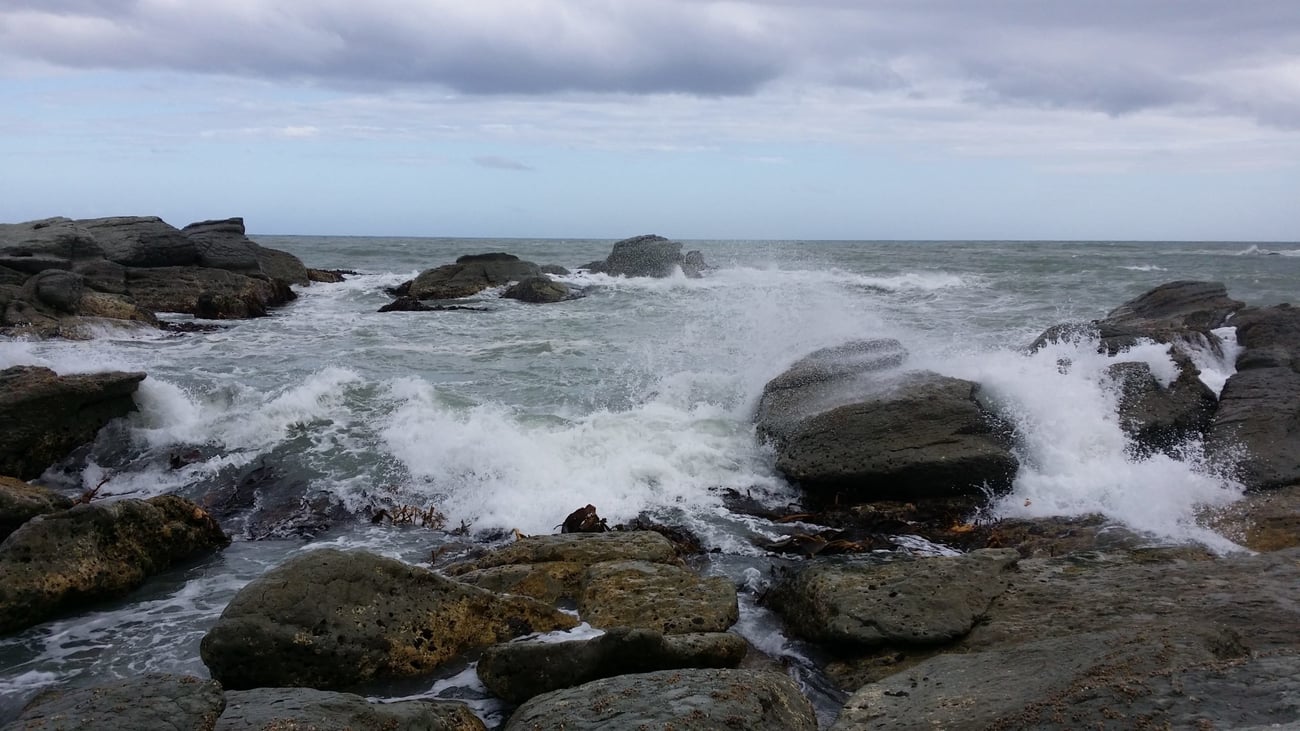How can New Zealand corporates and start-ups work more collaboratively? ZeroPoint, Datacom and others have some ideas

Top image: Kaik?ura. Photo by Ben Mack.
For the retreat, which was held earlier this year, ZeroPoint Ventures and Datacom partnered to bring together six founders from New Zealand’s start-up ecosystem and six senior executives from corporate New Zealand for three days, to have a conversation about the state of corporate-start-up engagement in Aotearoa.
Jane Treadwell-Hoye, co-founder and corporate lead at ZeroPoint Ventures, said: “We know that many New Zealand businesses, regardless of size or location, are struggling to embrace new ways of working, and lack the necessary tools and resources to adopt more entrepreneurial methods. We also know that startup founders often fail to grasp what’s required of them from corporate New Zealand.
“Today, start-ups and corporates need to better understand each other. We pondered how to bring real world problems to the table so start-ups focus on solutions that will drive better business, social and economic outcomes for all New Zealand. We spoke with founders struggling to gain traction with their ideas. We canvassed the views of senior leaders working in larger organisations and challenged them on how their organisations currently encourage innovation, and whether they embrace and adopt start-up approaches.”
Kerry Topp, Datacom’s associate director for transformation and innovation noted that, “Businesses are grappling with an extremely fast rate of change that is redefining how we do business. The CEOs and boards that we work with are deeply concerned about the rate of change that is occurring outside their walls. We want to support and accelerate business performance and we recognise that in order to do this, we need to go beyond what has been done so far, and do it differently.”
The online report itself looks very much like a Wikipedia page – which Treadwell-Hoye said was deliberate. “At the end of the retreat, we promised to publish the initial outputs of the participants, created in a wiki and shared widely for open conversations and community engagement,” she said. “https://playbook.nz is that wiki. It forms the first draft of a potential playbook, that over time with input and engagement from the wider New Zealand ecosystem, will hopefully be broadly adopted by the corporate and startup venture community. We hope it provides the first steps to begin building an engagement model for smarter, venture-led corporate innovation in New Zealand, leveraged with founders from the local startup ecosystem.”
The start-ups represented at the retreat were all at various stages of growth and maturity, and included Centrality, 8Wire, Mixt, Polyanio, Hikurangi Enterprises, and Invsta. Their reasons for participating were common – a lack of knowledge of who to connect with at the right level within corporate structures, frustration with the speed of corporate decision-making and their internal red tape processes, and a failure by corporates to focus on win-win solutions but instead only see benefits as one way.
Likewise, the corporate participants – MYOB, Zespri, Foodstuffs North Island, Vector, SkyCity Entertainment – had differing levels of experience engaging with start-ups. Those that had previously worked with start-ups were keen to learn how to enhance those connections. They were also keen to understand pain-points from the perspective of the start-ups, and see how they could ensure better, stronger connections with the start-up community. Companies that had no or little engagement with start-ups wanted to better understand how to locate and find local entrepreneurs and entrepreneurial talent, learn of the problems encountered by start-up founders attempting to engage their corporate entities, and see how they could embrace start-ups to create new ways of working together.
The https://playbook.nz report, which the retreat participants co-created and is shareable in an open-source format, includes draft templates, a lean partnering canvas, and guidelines. The working sessions from the retreat produced a model that has three distinct phases of engagement, which form a potential future partnering framework for start-ups and corporates:
- Scouting. Discovery, information harvesting, and knowledge acquisition as a pre-engagement phase.
- Dating. Working out how to move from introduction to commitment (or not) in the shortest timeframe while giving sufficient information, confidence and detail to move to the next stage.
- Engagement. Considering the maturing of the relationship type and the outcomes sought by both parties. A chance to decide on merely creating a creator/supplier agreement to enhance an existing product, offering a new product into the corporate range of offerings, or jumping the curve and delivering a truly innovative new model.
The retreat also revealed several key findings:
- Start-ups and sorporates need to know each other’s “why” to make sure they align.
- Start-ups need to do a more rigorous due diligence so they better understand how to approach corporates.
- Start-ups need to have clear success measures
- Corporates should share their strategic challenges – they need to make them visible and available, and actually invite people to come and solve challenges.
- Corporates should have a highly visible process to enable people to engage with them.
- Corporates need to filter, induct and guide the start-ups and their ideas through the corporate environment and be conscious that time-to-dollar is the enemy of most businesses, but particularly start-ups.
- Corporates need people with decision-making authority to work more rapidly with start-ups.
With the report now available and shareable, Treadwell-Hoye said there is great promise for the future of corporate-start-up working relationships in Aotearoa. “We encourage everyone to join in the discussion on how we can improve start-up-corporate relationships, and contribute to a new partnering model,” she said. “We believe it’s important that everyone in the ecosystem has a voice that reflects our unique New Zealand environment.”




